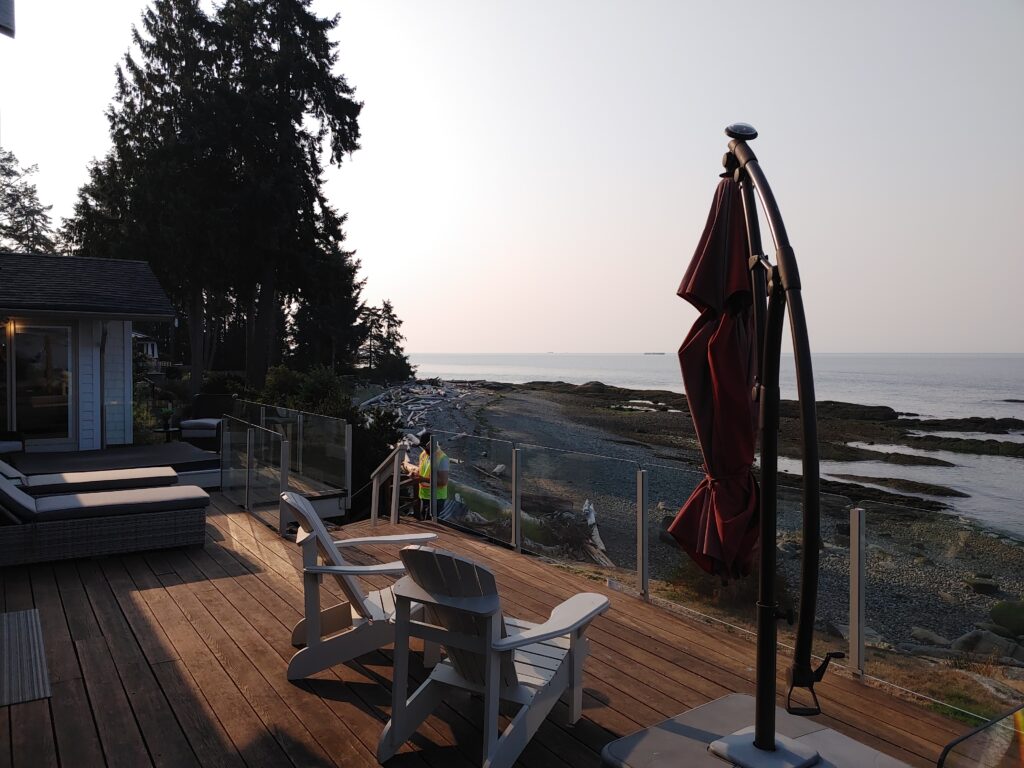When conducting an inspection of an ocean waterfront property, a home inspector will need to pay special attention to various issues that are unique to properties located near bodies of water. Here are some specific issues they will look for:
Salt Water Exposure
Oceanfront properties are exposed to saltwater, which can accelerate corrosion and deterioration of building materials. Inspectors will look for signs of rust, corrosion, and decay in structures and fixtures.
Foundation Stability
The proximity to water can impact the stability of the foundation due to erosion, shifting soils, and water infiltration. Inspectors will assess the foundation for any signs of cracks, settling, or movement.
Erosion and Shoreline Protection
Erosion is a common concern for oceanfront properties. Inspectors will evaluate the condition of retaining walls, bulkheads, seawalls, and other protective measures to prevent erosion.
Flood Risk
Oceanfront properties are at higher risk of flooding, both from storm surges and rising tides. Inspectors will assess the property’s elevation, flood zone designation, and the condition of flood barriers like seawalls or dikes.
High Humidity
High humidity and moisture levels near the ocean can promote mold and mildew growth. Inspectors will check for signs of moisture intrusion, water damage, and mold in the property’s structure.
Saltwater Corrosion
Saltwater can accelerate the corrosion of metal components such as railings, door hardware, and outdoor fixtures. Inspectors will examine these components for signs of corrosion and suggest appropriate maintenance or replacements.
Roof and Exterior
The ocean environment can be harsh on roofs and exterior materials. Inspectors will assess the condition of the roof, siding, windows, and doors for signs of weathering, water leaks, and damage.
Deck and Balcony Safety
Decks and balconies facing the ocean need to be inspected for structural integrity, proper fastening, and resistance to saltwater-related decay.
Electrical and HVAC
The salty air can impact HVAC systems and electrical components. Inspectors will check for corrosion in electrical panels, wiring, and HVAC equipment.
Septic System
If the property has a septic system, a septic systems contractor inspection will ensure that it’s properly designed to handle the conditions of a waterfront location and that it’s not at risk of contamination from high water tables or flooding.
Landscaping and Drainage
Proper drainage is crucial to prevent water from pooling around the property’s foundation. Inspectors will assess the grading, drainage systems, and landscaping elements to prevent water intrusion.
Permits and Regulations
Oceanfront properties often have specific building codes and regulations related to shoreline protection, setbacks, and erosion control. Inspection of municipal records by the agent will verify that the property complies with these requirements.
Wildlife and Pests
Waterfront properties can attract certain pests and wildlife. Pest control technicians will look for evidence of pest infestations and suggest measures to mitigate them.
Access and Easements
The buyer should check if the property has legal access to the water, any shared waterfront amenities, and any necessary easements for maintenance or access.
Tip
It’s important to note that the specific issues inspected can vary based on the property’s location, local regulations, and the expertise of the inspector(s) involved. If you’re considering purchasing an oceanfront property, hiring a qualified home inspector with experience in waterfront properties is crucial to identifying potential problems and making an informed decision.

